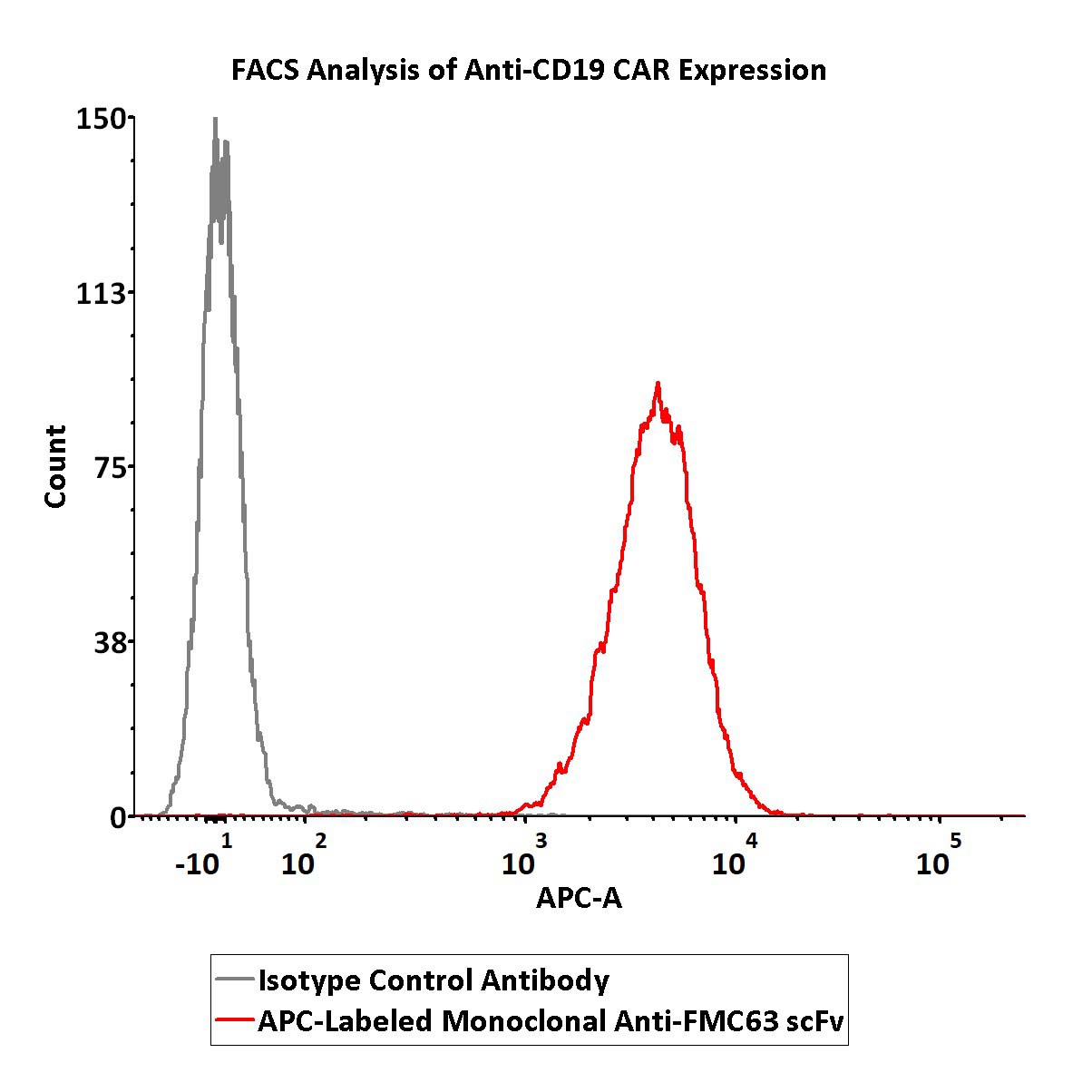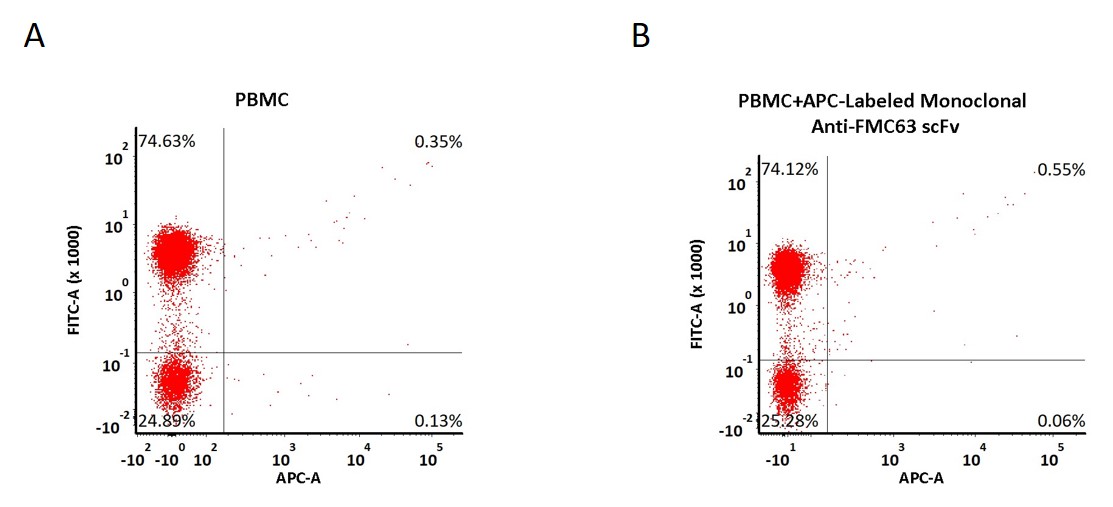抗体来源(Source)
APC-Labeled Monoclonal Anti-FMC63 Antibody, Mouse IgG1 (Y45) is produced via site-specific conjugation of APC to Monoclonal Anti-FMC63 scFv Antibody, Mouse IgG1 under optimal conditions with a proprietary technology.
应用(Application)
Flow Cytometry (Evaluation of Anti-CD19 (FMC63 scFv) CAR Expression). Please note that this product is NOT compatible to streptavidin detection system.
克隆号(Clone)
Y45
种属(Species)
Mouse
亚型(Isotype)
Mouse IgG1 | Mouse Kappa
特异性(Specificity)
Specifically recognizes the antigen-recognition domain of FMC63 derived CARs.
免疫原(Immunogen)
Recombinant FMC63 scFv derived from HEK293 cells.
偶联(Conjugate)
APC
Excitation Wavelength: 640 nm
Emission Wavelength: 661 nm
推荐稀释比(Recommended Dilution)
1:50
制剂(Formulation)
Lyophilized from 0.22 μm filtered solution in PBS, 0.5% BSA, 0.03% Proclin, pH7.4 with trehalose as protectant.
Contact us for customized product form or formulation.
重构方法(Reconstitution)
Please see Certificate of Analysis for specific instructions.
For best performance, we strongly recommend you to follow the reconstitution protocol provided in the CoA.
存储(Storage)
For long term storage, the product should be stored at lyophilized state at -20°C or lower.
Please protect from light and avoid repeated freeze-thaw cycles.
This product is stable after storage at:
- -20°C to -70°C for 24 months in lyophilized state;
- -70°C for 12 months after reconstitution;
- 2-8°C for 12 months after reconstitution.
活性(Bioactivity)-FACS

5e5 of anti-CD19 CAR-293 cells were stained with 100 μL of 1:50 dilution (2 μL stock solution in 100 μL FACS buffer) of APC-Labeled Monoclonal Anti-FMC63 Antibody, Mouse IgG1 (Y45) (Cat. No. FM3-AY54A1) and isotype control antibody respectively. APC signal was used to evaluate the binding activity (QC tested).
Protocol

Non-specificity of APC-Labeled Monoclonal Anti-FMC63 Antibody, Mouse IgG1 (Y45) (Cat. No. FM3-AY54A1) binding to CD3+ cells present in human PBMC. Human PBMCs were simultaneously stained with FITC-labeled anti-CD3 antibody and APC-Labeled Monoclonal Anti-FMC63 Antibody, Mouse IgG1 (Y45) (2 μL of the antibody stock solution corresponds to labeling of 5e5 cells in a final volume of 100 μL), washed and then analyzed with FACS. Both FITC and APC positive signals was used to evaluate the non-specific binding activity to human CD3+ cells (QC tested).
Protocol
CAR阳性表达率检测(Evaluation of CAR expression)
FACS Analysis of Non-specific binding to Human whole blood

Non-specificity of APC-Labeled Monoclonal Anti-FMC63 Antibody, Mouse IgG1 (Y45) (Site-specific conjugation) (0.03% Proclin)(Cat. No. FM3-AY54A1) binding to CD3+ cells present in human whole blood. 100 μl of human whole blood were simultaneously stained with APC/Cyanine7 anti-human CD3 Antibody and APC-Labeled Monoclonal Anti-FMC63 Antibody, Mouse IgG1 (Y45) (2 μL of the antibody stock solution in a final volume of 100 µL), compared with isotype control antibody and positive control antibody. Both APC/Cyanine7 and APC positive signals was used to evaluate the non-specific binding activity to human CD3+ cells.
背景(Background)
The epidermal growth factor receptor (EGFR; ErbB-1; HER1 in humans) is the cell-surface receptor for members of the epidermal growth factor family (EGF-family) of extracellular protein ligands. The epidermal growth factor receptor is a member of the ErbB family of receptors, a subfamily of four closely related receptor tyrosine kinases: EGFR (ErbB-1), HER2/c-neu (ErbB-2), Her 3 (ErbB-3) and Her 4 (ErbB-4). Mutations affecting EGFR expression or activity could result in cancer.























































 膜杰作
膜杰作 Star Staining
Star Staining












